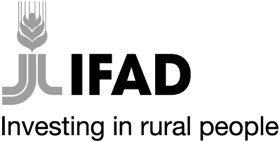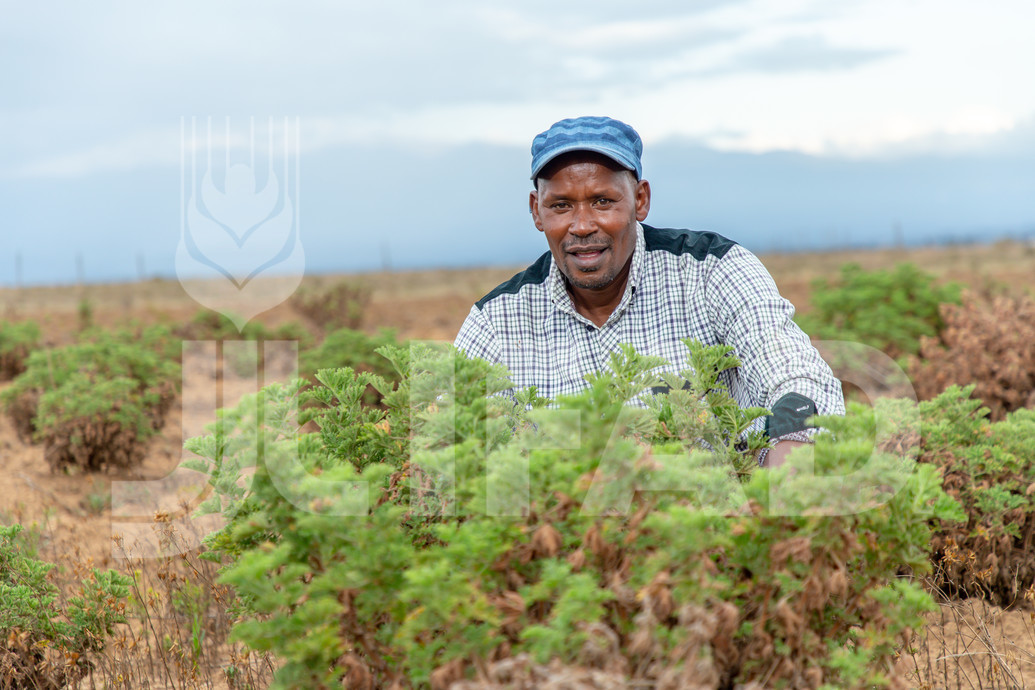| ID: | 76894 |
|---|---|
| Country: | Kenya |
| Title: | Kenya – Upper Tana - Nairobi Water Fund- October 2022 |
| Description: |
Stephen Matu and his wife are farmers in Rehema Village, Laikipia East, Laikipia County in Kenya. His farming journey started through his parents in the ’80s who were beneficiaries of the Shamba system. This was an afforestation program implemented by allowing farms to clear forest shrubs, prepare the land for farming, growing trees and plants together, and when the trees developed, they were to abandon the land, move to a different section and repeat the process. The effort failed because some of the beneficiaries invaded the forest land and used it for other unintended purposes which led to the halting of the program and the eviction of all beneficiaries in 1989 rendering them homeless. In 2009, the acting government re-settled the farmers, Stephen included, to Bahati, a semi-arid area with a very different soil type and landscape from their previous residence. The farmers used their knowledge of farming to try and cultivate the land. However, challenges arose because they were not accustomed to farming in such an area, leading to losses due to drought, water quality, unreliable farming techniques, and most importantly, the lack of skill development opportunities on best-fit practices for their new land. Consequently, most of them went to work as casual laborers in lands they were familiar with as most families did not have food or income to sustain themselves. Fortunately, Stephen’s region was selected as one of the beneficiaries of the Water Fund. At first, a borehole was set up to provide water for domestic use and farming. Stephen was a beneficiary of training in farming techniques that suited the land in Bahati, and soon enough, they commenced utilizing their farmlands. Soon enough, he realized that borehole water was mineral-rich and not very efficient for farming. Again, Water Fund stepped in and facilitated him setting up a water pan on his farm and two dams for the community. The water pans provided readily available fresh water for farming. Stephen also invested in fish rearing in the dams which then served as a separate source of income. Stephen and his wife now market their fish through Facebook and Whatsapp to potential buyers. The Water fund also facilitated training Stephen and his peers on the drip farming technique. During the rainy season, they pump the water collected in the water pans to the drip tank and then use it for drip irrigation farming during the dry season. The techniques have allowed Stephen to not only ensure food security for his family but also have some income from selling the extra produce. The income from the sales enabled Stephen to buy a cow that provides milk to sell and whose manure is resourceful in his farming. Stephen was also introduced to Rose Geranium farming, a less-resource-intensive plant that produces essential oil. It only requires organic manure and water to grow and flourish. He hopes that the growth of Geranium catches on and his area can rely on it as the main cash crop. Additionally, Stephen and his fellow farmers discovered the need for trees as windbreaks for their landscape since the strong wind in the area would damage roof and even sweep away the weak shelters. They had started a tree seedling nursery that only had 500 seedlings. With the installation of the water pans, they expanded the nursery to 20,000 seedlings which they sell to schools, organizations, and other farmers. The income Stephen receives has enabled him to purchase a motorbike to replace his bicycle. His commute time to and from suppliers has been significantly reduced and the capacity load per trip has increased. He is very thankful to IFAD for enabling him to be a proud husband and father who can provide for his family through his farming skills. The goal of Upper Tana Catchment Natural Resource Management Project is to contribute to the reduction of rural poverty in the Upper Tana River catchment through increased sustainable food production and incomes for poor rural households, as well as sustainable management of natural resources. The project has three main components; Empowering communities to sustainably manage natural resources by building their capacity to develop resource management plans while also improving their livelihoods, Sustainably improving the incomes and living standards of the target group through interventions that are beneficial to the management of the natural resource base and Improving the sustainable management and use of water and other natural resources. The target area for the project is the Upper Tana catchment, covering 6 of Kenya's 47 counties. Around 205,000 poor rural households – including smallholder crop and livestock farmers, agro-pastoralists, fishers and rural traders – are expected to benefit from the initiative, which features a special focus on women, young people and other vulnerable groups |
| Size: | 12.50 MB; 5472 x 3648 pixels; 463 x 309 mm (print at 300 DPI); 1448 x 965 mm (screen at 96 DPI); |
| Show more details: | Translieu/ Samuel Nyaberi |
| Copyright: | ©IFAD/Translieu/Samuel Nyaberi |
| Categories: | New from East and Southern Africa |
| URL: | www.ifad.org |

